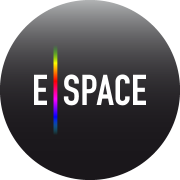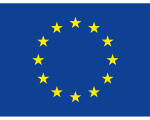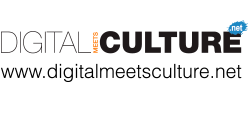The University of Exeter
Profile of the organisation
Exeter University is one of the UK’s most popular and successful universities with campuses in Exeter, Devon, and near Falmouth in Cornwall. It has Project Offices in Shanghai, Beijing and Bangalore. Students and staff enjoy some of the finest campus environments in the UK. Exeter is a member of the Russell Group, which represents 24 leading UK universities committed to maintaining the very best research, an outstanding teaching and learning experience and unrivalled links with business and the public sector. Russell Group universities play a major role in the intellectual, cultural and economic life of the UK and have an international reputation for the high quality of their research and teaching. In an increasingly global higher education market, they attract the very best academics and students from around the world, as well as investment from multinational, research intensive businesses. Exeter is ranked 10th out of more than 100 UK universities in the Times league table. The Times and Sunday Times rates Exeter in 8thth place and in 2012 named Exeter ‘Sunday Times University of the Year 2012/13′. Exeter is one of the top 200 universities in the world according to the Times Higher Education’s World University Rankings. The University has significant experience of participating in and managing international research projects, and currently participates in around 126 Framework Programme 7 projects. The portfolio includes 54 FP7 Collaborative research projects (10 as coordinator), hosting 19 Marie Curie fellowships (IEF, IIF, IOF), 4 Marie Curie CIGs, 14 Marie Curie Initial Training Networks (2 as coordinator), 9 IRSES programmes (4 as coordinator), and 21 ERC grants (17 as host).
Role in the Project
Charlotte Waelde, based at the University of Exeter, working closely with lead participants and contributors, will co-lead WP 3 Rights management for creative exploitation of Europeana Space content and take the lead on Tasks 3.2 and 3.4. She will ensure that the deliverables are of a high quality, that they contain research informed messages, are of practical relevance to the users, and are delivered on time. She will work closely with other task leaders to ensure that new forms and methods for creative exploitation are embedded within the IP framework, clearly understood, and respond to the needs of different users. Working with the team she will seek to facilitate understandable, useful and usable mechanisms and information for the use and re-use of creative content in Europeana Space.
Key Personnel
Chartotte Waelde LLB (Hons); DipLP; PhD, Professor of Intellectual Property Law, University of Exeter. As a researcher, her focus is on the intersection between intellectual property in general and copyright in particular and changing technologies. She examines changes in the law and practice wrought by those technologies, and the impact that those changes have on the way that the law is both perceived and used by the affected communities. Her work explores ways in which the law may be better calibrated to meet the needs of stakeholders. Her work is international in nature, but also has strong comparative, European and domestic influences appropriate to the subject areas. She has been involved in many funded projects: she was co-Director of the Edinburgh research Centre SCRIPT from 2002-2012; led the network, Music and Dance: Beyond Copyright Text? and is co-I on the project Invisible Difference: Disability Dance and the Law all major AHRC funded projects. She was CoI for the ESRC and ESPRC funded Digital Curation Centre at Edinburgh. She is chair of the Intellectual Property Office Copyright Research Expert Advisory Group. In addition to her academic experience Charlotte has extensive practical experience of copyright in business and the community having been involved in many consultancy projects including: 2007, scoping a Geospatial Data Repository (with McGinley, M), JISC; 2005, IPRs in international e-learning programmes for JISC/HEFCE (with Intrallect); The application of the database right to e-learning programmes; and Joint authorship and ownership in international e-learning programmes (with Torremans); 2005: Creative Commons Licences and Public Sector organisations for CIE (with Intrallect, Hatcher, J and Guadamuz, A); 2004:Digital Rights Management Study, for JISC. (with Intrallect). Charlotte was also one of the co-drafters of the Open Database Licence http://blog.okfn.org/2007/09/25/open-database-license/
































